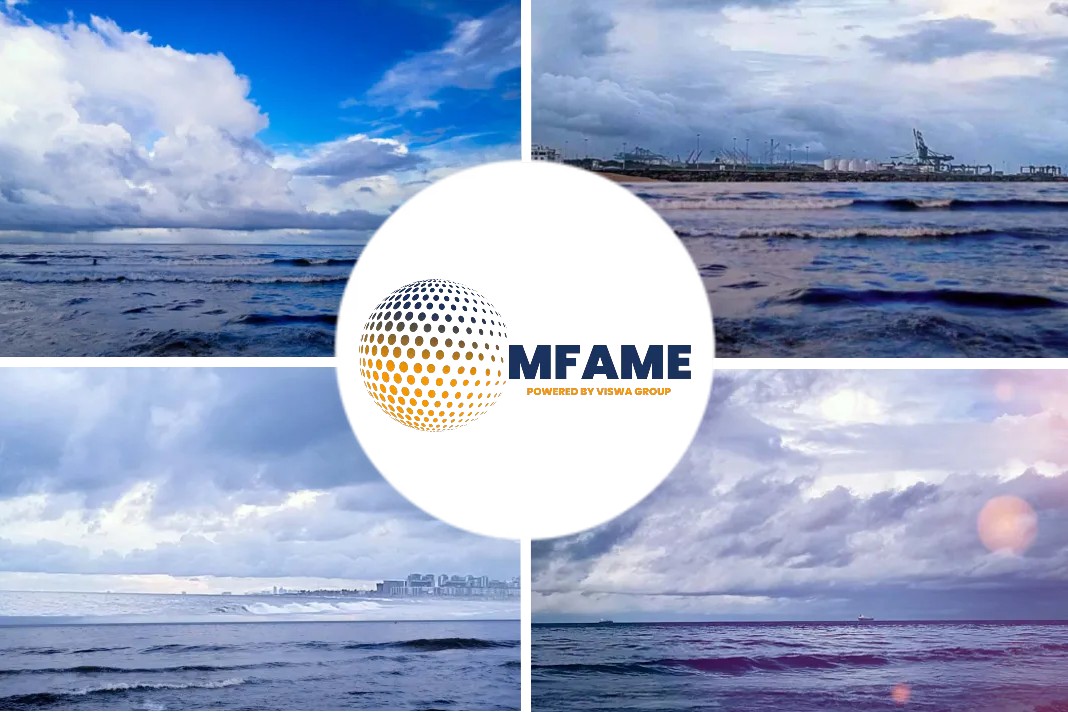
- The Swedish tanker-owning community may be small, but it is sophisticated, with owners sharing a similar mindset in terms of the environment and sustainability.
- The new orders will maintain Erik Thun Group’s numerical lead over second-placed Tarbit Shipping, which also placed orders in 2023.
- The CO2 emissions of Olympus are heavily reduced as a result of an SCR reactor connected to the main engine and a Catamiser to the auxiliary engines.
The largest Swedish beneficial tanker owner is Erik Thun Group, according to data from VesselsValue. Erik Thun Group is in an expansionist phase; in January 2023, it announced an eight-vessel order, with four newbuilds joining two previously ordered ‘R-class’ tankers.
Powering towards sustainability
Four multi-purpose dry-cargo vessels, of 5,100 dwt and Ice class 1B, are covered by the signed contracts.
The remaining orders for four 7,999-dwt coastal tankers were placed by Thun Tankers BV, part of the Erik Thun Group, adding to two previously ordered resource-efficient R-class tankers.
Eight new vessels have been contracted to be built by Shipsveerf Ferus Smit BV in the Netherlands.
Innovative tanker features
The R-class tankers have been designed to incorporate minimal energy usage, with updated hull designs and the newest and most efficient packaging available from the shipbuilder to ensure minimal environmental impact.
All the vessels in the series have dual-fuel capability, use LNG/ liquid biogas (LBG) as fuel, are equipped with a battery-hybrid solution and have several innovative features that reduce fuel and energy consumption, resulting in lower emissions of CO2, sulphur, nitrogen oxide and hazardous particles.
Leading new order
The new orders will maintain Erik Thun Group’s numerical lead over second-placed Tarbit Shipping, which also placed orders in 2023.
Up to four dual-fuelled chemical tanker newbuildings, worth about US$200M, have been ordered by Tarbit Shipping.
The construction of two of the vessels has been contracted to Singapore-listed Yangzijiang Shipbuilding. The newbuildings will be delivered in early 2022 and will receive dual-fuel machinery using LNG or LBG as fuel.
Health of tanker fleet
Meanwhile, third-placed Furetank has made a significant land-based contribution to the health of the Swedish tanker fleet.
It has converted its former headquarters on the island of Donsö outside Gothenburg into a maritime educational centre.
The change was made due to rapid developments in the shipping industry, demanding constant updates of onboard routines and seafarer skills.
New industry standards, such as the upcoming SIRE 2.0 inspection programme, have increased demand even further for courses and skills development, said the company.
A simulator complex, equipped with the most sophisticated technology available, will service shipping companies operating from the island and other external parties. Designed by Wärtsilä, the simulator complex can hold 14 students at a time.
Technological advancement
Physical simulation bridges are combined with virtual-, augmented- and mixed-reality applications to create highly realistic learning environments for navigation, manoeuvring, eco driving, docking, cargo handling, safety procedures and proper use of new ship technology, such as shore-power connections and LNG bunkering.
The system allows interaction between captain and pilot, bridge and engineroom for training in the communications skills required in real-life scenarios.
Furetank personnel manager Jonas Gunnarsson said that the lack of access to simulator environments has been a bottleneck for the company.
Largest fuel company in Sweden
Fourth ranked Swedish beneficial owner by number, Sirius Shipping, won a significant charter which partners the company with Preem.
Preem is a Swedish oil company that refines and sells gasoline, diesel, heating oil and renewable fuels.
It is the largest fuel company in Sweden and has a refining capacity of more than 18M m3 per year. Preem has set a goal of producing 5M m3 per year of renewable fuel by 2030.
Under the partnership, the environmentally friendly 2006-built, 9,189 dwt tanker Olympus was taken on time charter by Preem in 2023.
According to Sirius Shipping, the vessel will be an efficient addition to Preem’s commitment to the safe and sustainable sea transportation of renewable commodities, with reduced environmental impact.
“The lack of access to simulator environments has been a bottleneck for the company”
Reduction in CO2 emission
The CO2 emissions of Olympus are heavily reduced as a result of an SCR reactor connected to the main engine and a Catamiser to the auxiliary engines.
The Catamiser allows residual heat to be recirculated and used onboard, which reduces energy consumption as well as emissions during loading and discharging in port.
Olympus will be long-term chartered to Preem, mainly to supply green feedstock/renewable commodities, while also being able to distribute products.
The Swedish flagged tanker, with home port Donsö, Gothenburg, will be delivered into Preem’s service during the second quarter of 2023.
Preem shipping manager, Tryggve Berlin, said that meeting high sustainability demands was an important part of the procurement processes.
Expanding fleet
No review of the Swedish tanker scene can be complete without a mention of Concordia Maritime, the public-listed tanker company within the Stena Bulk group.
Based in Gothenburg, the product tanker operator has sold 10 tankers since August 2021, the latest being the 2010-built, 62,500 dwt Stena Pengiun.
According to Concordia Maritime chief executive, Erik Lewenhaupt, the company is divesting another vessel, with a good margin.
Stena Penguin has been on a five-year charter, including profit-sharing, to parent company, Stena Bulk, since 2021.
Following the sale, Concordia Maritime’s fleet will consist of three product tankers: Stena Progress; Stena Premium; and Stena Polaris.
Did you subscribe to our Newsletter?
It’s Free! Click here to Subscribe.
Source: Riviera
















